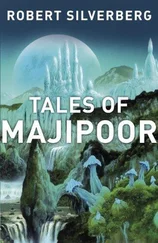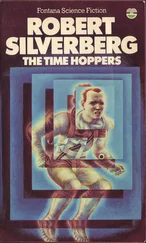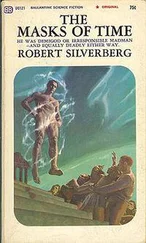Robert Silverberg - Lion Time in Timbuctoo
Здесь есть возможность читать онлайн «Robert Silverberg - Lion Time in Timbuctoo» весь текст электронной книги совершенно бесплатно (целиком полную версию без сокращений). В некоторых случаях можно слушать аудио, скачать через торрент в формате fb2 и присутствует краткое содержание. Год выпуска: 2014, ISBN: 2014, Издательство: Subterranean Press, Жанр: Фантастика и фэнтези, на английском языке. Описание произведения, (предисловие) а так же отзывы посетителей доступны на портале библиотеки ЛибКат.
- Название:Lion Time in Timbuctoo
- Автор:
- Издательство:Subterranean Press
- Жанр:
- Год:2014
- ISBN:978-1-59606-693-9
- Рейтинг книги:3 / 5. Голосов: 1
-
Избранное:Добавить в избранное
- Отзывы:
-
Ваша оценка:
- 60
- 1
- 2
- 3
- 4
- 5
Lion Time in Timbuctoo: краткое содержание, описание и аннотация
Предлагаем к чтению аннотацию, описание, краткое содержание или предисловие (зависит от того, что написал сам автор книги «Lion Time in Timbuctoo»). Если вы не нашли необходимую информацию о книге — напишите в комментариях, мы постараемся отыскать её.
Lion Time in Timbuctoo — читать онлайн бесплатно полную книгу (весь текст) целиком
Ниже представлен текст книги, разбитый по страницам. Система сохранения места последней прочитанной страницы, позволяет с удобством читать онлайн бесплатно книгу «Lion Time in Timbuctoo», без необходимости каждый раз заново искать на чём Вы остановились. Поставьте закладку, и сможете в любой момент перейти на страницу, на которой закончили чтение.
Интервал:
Закладка:
Selina turned to face him. “My nipples are dark.”
“Yes, of course. You’re a Turk. But Elizabeth—”
“I don’t want to hear any more about Elizabeth. Kiss me.”
Her nipples were dark, yes, and very small, almost like a boy’s, tiny dusky targets on the roundness of her breasts. Her thighs were surprisingly full. She looked far more voluptuous naked than when she was clothed. He hadn’t expected that. The heavy thatch at the base of her belly was jet black.
He said, “We don’t care for kissing in Songhay. It’s one of our quaint tribal taboos. The mouth is for eating, not for making love.”
“Every part of the body is for making love. Kiss me.”
“You Europeans!”
“I’m not European. I’m a Turk. You do it in some peculiar way here, don’t you? Side by side. Back to back.”
“No,” he said. “Not back to back. Never like that, not even when we feel like reverting to tribal barbarism.”
Her perfume drifted toward him, falling over him like a veil. Little Father went to her and she rose up out of the night to him, and they laughed. He kissed her. It was a lie, the thing he had told her, that Songhayans did not like to kiss. Songhayans liked to do everything: at least this Songhayan did. She slipped downward to the swirl of silken pillows on the floor, and he joined her there and covered her body with his own. As he embraced her he felt the moonlight on his back like the touch of a goddess’ fingertips, cool, delicate, terrifying.
On the horizon a sharp dawn-line of pale lavender appeared, cutting between the curving grayness above and the flat grayness below. It was like a preliminary announcement by the oboes or the French horns, soon to be transformed into the full overwhelming trumpetblast of morning. Michael, who had been wandering through Old Timbuctoo all night, stared eastward uneasily as if he expected the sky to burst into flame when the sun came into view.
Sleep had been impossible. Only his face and hands were actually sunburned, but his whole body throbbed with discomfort, as though the African sun had reached him even through his clothing. He felt the glow of it behind his knees, in the small of his back, on the soles of his feet.
Nor was there any way to escape the heat, even when the terrible glaring sun had left the sky. The nights were as warm as the days. The motionless air lay on you like burning fur. When you drew a breath you could trace its path all the way down, past your nostrils, past your throat, a trickle of molten lead descending the forking paths into your lungs and spreading out to weigh upon every individual air-sac inside you. Now and then came a breeze, but it only made things worse: it gave you no more comfort than a shower of hot ashes might have afforded. So Michael had risen after a few hours of tossing and turning and gone out unnoticed to wander under the weird and cheerless brilliance of the overhanging moon, down from the posh Embassy district into the Old Town somehow, and then from street to street, from quarter to quarter, no destination in mind, no purpose, seeking only to obliterate the gloom and misery of the night.
He was lost, of course—the Old Town was complex enough to negotiate in daylight, impossible in the dark—but that didn’t matter. He was somewhere on the western side of town, that was all he knew. The moon was long gone from the sky, as if it had been devoured, though he had not noticed it setting. Before him the ancient metropolis of mud walls and low square flat-roofed buildings lay humped in the thinning darkness, a gigantic weary beast slowly beginning to stir. The thing was to keep on walking, through the night and into the dawn, distracting himself from the physical discomfort and the other, deeper agony that had wrapped itself like some voracious starfish around his soul.
By the faint light he saw that he had reached a sort of large pond. Its water looked to be a flat metallic green. Around its perimeter crouched a shadowy horde of water-carriers, crouching to scoop the green water into goatskin bags, spooning it in with gourds. Then they straightened, with the full bags—they must have weighed a hundred pounds—balanced on their heads, and went jogging off into the dawn to deliver their merchandise at the homes of the wealthy. Little ragged girls were there too, seven or eight years old, filling jugs and tins to bring to their mothers. Some of them waded right into the pool to get what they wanted. A glowering black man in the uniform of the Emirate sat to one side, jotting down notations on a sheet of yellow paper. So this was probably the Old Town’s municipal reservoir. Michael shuddered and turned away, back into the city proper. Into the labyrinth once more.
A gray, sandy light was in the sky now. It showed him narrow dusty thoroughfares, blind walls, curving alleyways leading into dark cul-de-sacs. Entire rows of houses seemed to be crumbling away, though they were obviously still inhabited. Under foot everything was sand, making a treacherous footing. In places the entrances to buildings were half choked by the drifts. Camels, donkeys, horses wandered about on their own. The city’s mixed population—veiled Tuaregs, black Sudanese, aloof and lofty Moors, heavy-bearded Syrian traders, the whole West African racial goulash—was coming forth into the day. Who were all these people? Tailors, moneylenders, scribes, camel-breeders, masons, bakers, charm-sellers, weavers, bakers—necromancers, sages, warlocks, perhaps a few vampires on their way home from their night’s toil—Michael looked around, bewildered, trapped within his skull by the barriers of language and his own disordered mental state. He felt as though he were moving about under the surface of the sea, in a medium where he did not belong and could neither breathe nor think.
“Selima?” he said suddenly, blinking in astonishment.
His voice was voiceless. His lips moved, but no sound had come forth.
Apparition? Hallucination? No, no, she was really there. Selima glowed just across the way like a second sun suddenly rising over the city.
Michael shrank back against an immense buttress of mud brick. She had stepped out of a doorway in a smooth gray wall that surrounded what appeared to be one of the palaces of the nobility. The building, partly visible above the wall, was coated in orange clay and had elaborate Moorish windows of dark wood. He trembled. The girl wore only a flimsy white gown, so thin that he could make out the dark-tipped spheres of her breasts moving beneath it, and the dark triangle at her thighs. He wanted to cry. Had she no shame? No. No. She was indifferent to the display, and to everything around her; she would have walked completely naked through this little plaza just as casually as she strode through in this one thin garment.
“Selima, where have you spent this night? Whose palace is this?”
His words were air. No one heard them. She moved serenely onward. A motorcar appeared from somewhere, one of the five or six that Michael had seen so far in this city. A black plume of smoke rose from the vent of its coal-burning engine, and its two huge rear wheels slipped and slid about on the sandy track. Selima jumped up onto the open seat behind the driver, and with great booming exhalations the vehicle made its way through an arched passageway and disappeared into the maze of the town.
An embassy car, no doubt. Waiting here for her all night?
His soul ached. He had never felt so young, so foolish, so vulnerable, so wounded.
“Effendi?” a voice asked. “You wish a camel, effendi?”
“Thank you, no.”
“Nice hotel? Bath? Woman to massage you? Boy to massage you?”
“Please. No.”
“Some charms, maybe? Good grigri. Souvenir of Timbuctoo.”
Michael groaned. He turned away and looked back at the house of infamy from which Selima had emerged.
Читать дальшеИнтервал:
Закладка:
Похожие книги на «Lion Time in Timbuctoo»
Представляем Вашему вниманию похожие книги на «Lion Time in Timbuctoo» списком для выбора. Мы отобрали схожую по названию и смыслу литературу в надежде предоставить читателям больше вариантов отыскать новые, интересные, ещё непрочитанные произведения.
Обсуждение, отзывы о книге «Lion Time in Timbuctoo» и просто собственные мнения читателей. Оставьте ваши комментарии, напишите, что Вы думаете о произведении, его смысле или главных героях. Укажите что конкретно понравилось, а что нет, и почему Вы так считаете.












